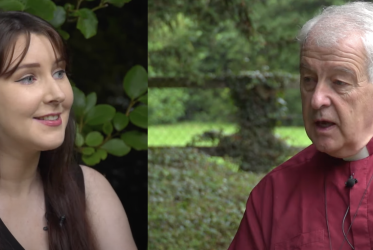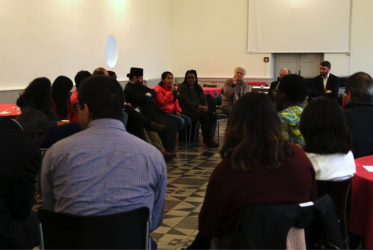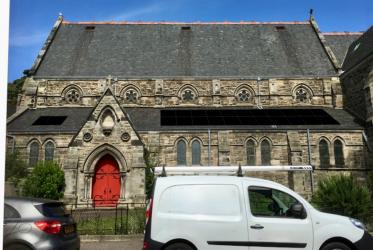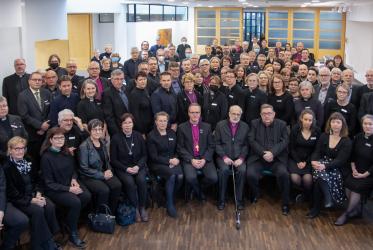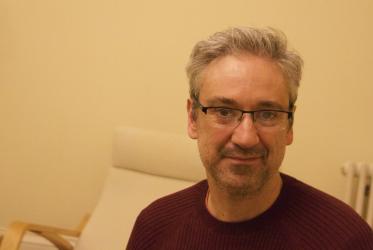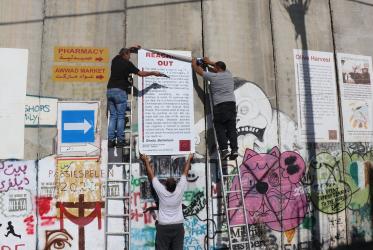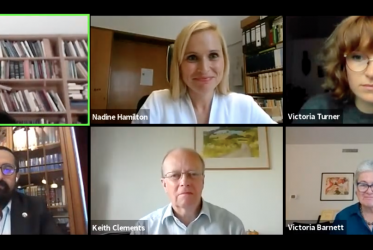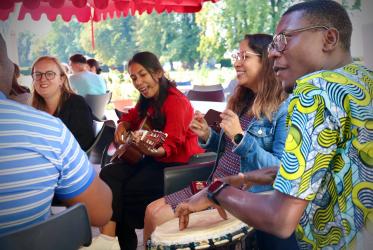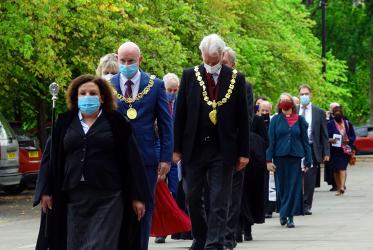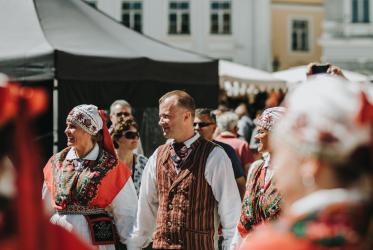Displaying 161 - 180 of 230
In East Jerusalem, “we will never give up our rights”
29 October 2021
WCC consultation reflects on future of health ministry
15 October 2021
Youth “meet and greet” yields ideas to tackle digital injustice
20 September 2021
New academic year underway at Ecumenical Institute in Bossey
13 September 2021
In Lebanon, “without peace there is no justice”
21 July 2021
